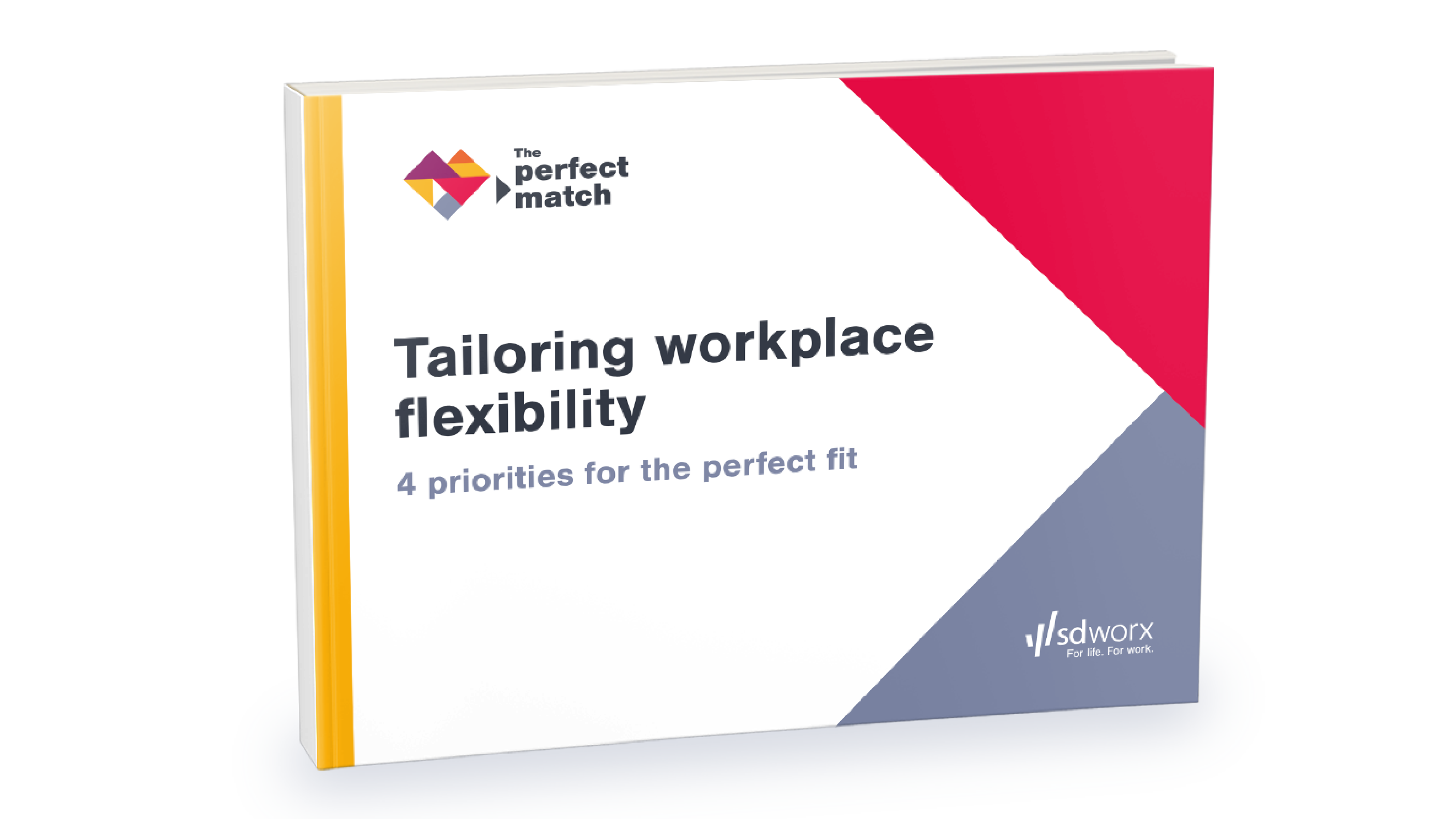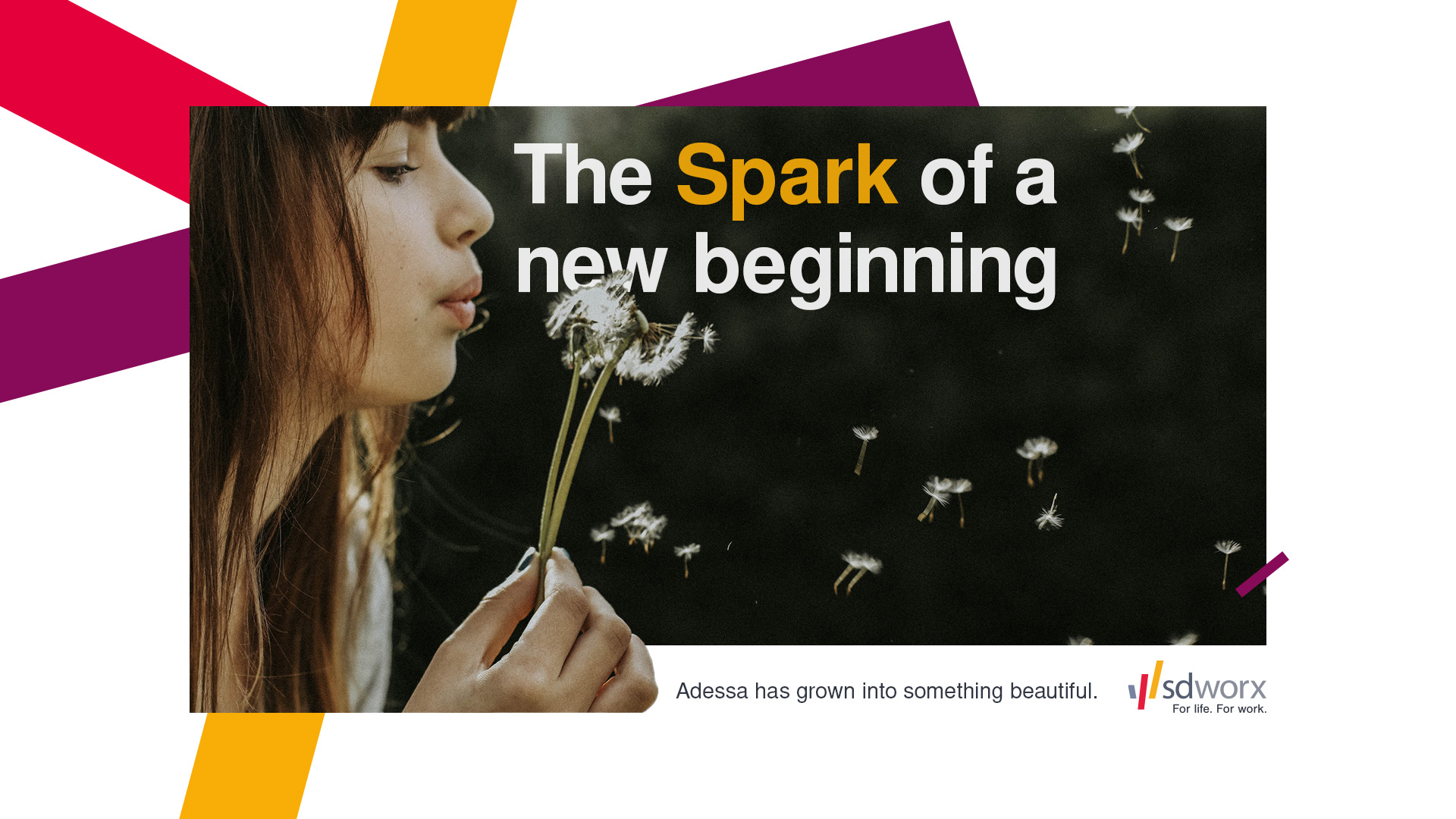
4 changes to expect in the future of flexible work
Right now, our ideas about ‘flexible work’ are changing rapidly. AI has transformed the way we think about productivity across industries, while the popularity of remote work and flex-time has led to a reassessment of what we mean by ‘office culture’, ‘work-life balance’ and more. So, how can we expect the flexible work landscape to continue evolving? We asked SD Worx experts for the biggest changes to look out for.
1. More personalized flexibility
According to SD Worx’s HR Evangelist Jan Laurijssen, the way employees perceive benefits is evolving. "It’s true that people prefer having a variety of benefits to choose from," he comments. “But this shift is not simply about variety; it's about relevance and personalization. Employees are seeking benefits that reflect their personal values and circumstances—ranging from mental health support to flexible leave options tailored to their life events. You’re then supporting them not just for work but also for life, setting them on a sustainable career path at your company that enables them to truly thrive.”
For employers, that means considering new policies like financial wellbeing support or enabling “workation”, but also getting feedback on whether these policies would truly be relevant to the unique needs of your workforce.
2. Turning the focus to fairness
“As we tailor benefits to individual needs, the challenge is to maintain fairness and inclusivity, while of course ensuring compliance” notes SD Worx Senior Researcher Lorenzo Andolfi. But how do you ensure equitable treatment when everyone has different needs? Potential solutions may include allocating benefit credits that employees can use at their discretion.
As Lorenzo points out, getting it right takes trial and error. “It’s important to continually review and renew flexible work and benefit policies, while also engaging with employees to understand their needs and preferences. That’s the only way to make sure these don’t become a source of inequality or exclusion, because the needs of your people are evolving all the time.”
3. A growing need for autonomy and trust
By now, it’s clear to forward-thinking employers and senior HR managers that creating an environment of fear and mistrust leads to low engagement and retention rates. But for new managers facing the distance created by remote working and differing hours, it can be tempting to hover, helicopter and monitor, albeit digitally.
According to Jan, “More managers are seeing the benefits of trusting employees to manage their schedules and workload. But this trust extends beyond enabling flexibility—it’s about empowering employees to shape their work environment, which in turn drives innovation and satisfaction.”

4. Redefining “working hours”
One outcome of growing personalization we’re already seeing is that cultural standards like the 9-5 workday are less common, and less rigid. “As asynchronous work grows more popular, employees are able to use their time more wisely, deciding which tasks to prioritize in the moment and which to return to after a break,” comments Lorenzo. “Therefore, it’s becoming all the more important to focus on output rather than hours logged.”
While technology has facilitated the work-anywhere-anytime revolution, both experts acknowledge its role in encouraging burnout. “Flexibility without boundaries is chaos,” states Lorenzo. “In the future of work, all managers will be trained to look for the signs of burnout, and they should be expected to model work-life balance by clearly communicating and sticking to their personal on/off times.”


Azra Ahmed
Brand Content Creator at SD Worx


